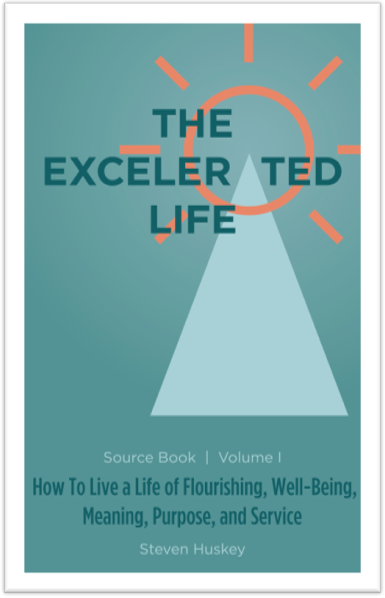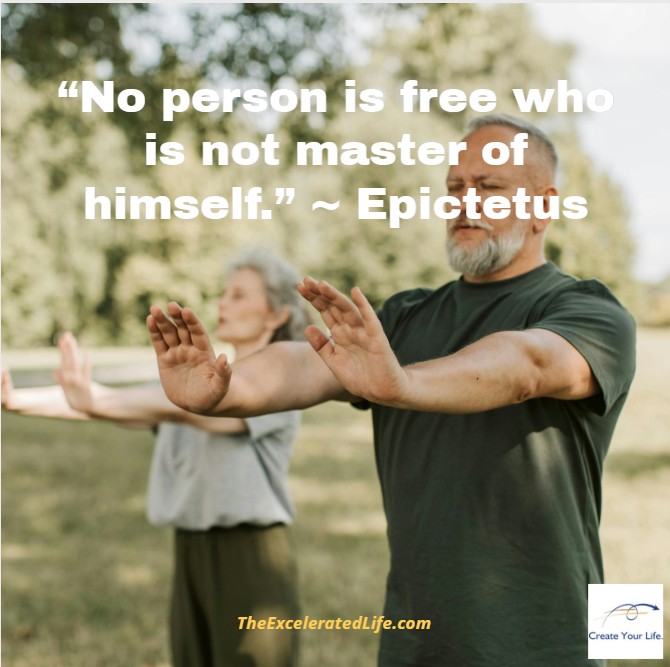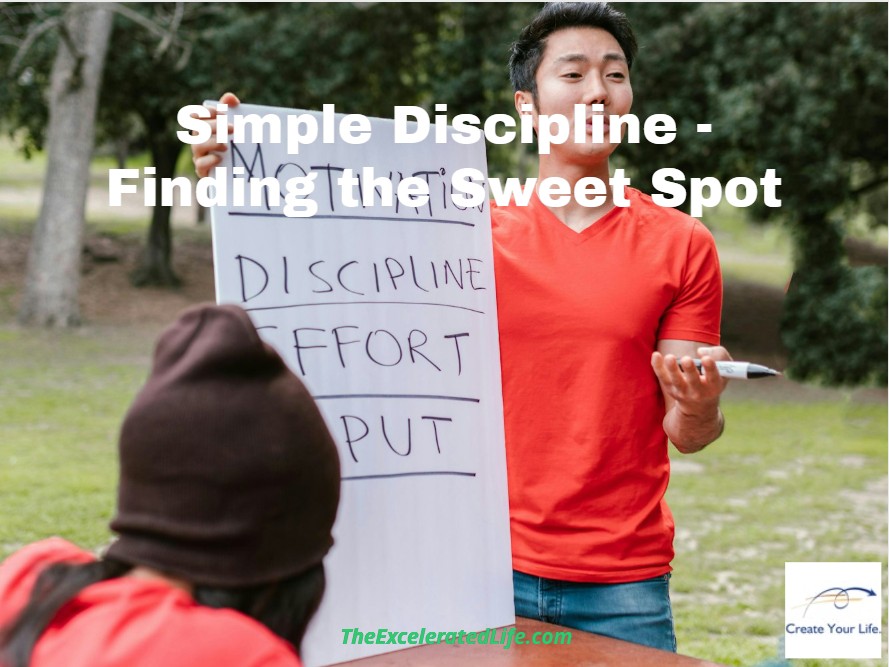Proper discipline is learning to guide yourself, learning how to bring order to your life through simple, consistent actions that build strength over time.
[Title Photo by RDNE Stock project]
A Simple Discipline
Years ago, I knew someone who began each morning with a simple ritual: making his bed. Nothing fancy, nothing perfect — just neatly straightened sheets and pillows in order. He would often say, “If I can start the day with this little act of discipline, then I’ve already won.”
It may sound trivial, but that one small discipline rippled outward into other areas of his life. He ate more mindfully, stayed more focused at work, and was calmer with his family. That one simple practice became the anchor for larger ones.
This is the heart of Excelerated Discipline™ — not punishing rules or rigid willpower, but learning how to bring order to your life through simple, consistent actions that build strength over time.
We sometimes equate discipline with punishment. But proper discipline is learning to guide yourself, calmly, consistently, and wisely.

The Discipline “Sweet Spot”
“Discipline is important because without it, you can’t control the mind. If you can’t control yourself, you are always a victim of the brat within . . . So you have to start making yourself do things that help you exert control . . . Invent things, one after the next — some disciplines of a minor nature, others more major, but get the ego used to the idea that you are going to get it doing things it doesn’t necessarily like. It’s got to buy the idea that you are in control.” ~ Stuart Wilde
One of the most powerful ways to think about discipline is to see it as the balance point between strength and simplicity. [Kight]
On one side lies discipline — the effort, the push, the ability to do the hard thing when you don’t feel like it. On the other side lies simplicity — clarity, focus, cutting away unnecessary complexity.
To cultivate discipline, ask yourself two questions each day [Kight]:
- What is the most disciplined action I could take right now?
- What is the simplest action I could take right now?
Often, the most disciplined action may be more than you can realistically do. And the simplest action may require no discipline at all. But somewhere in between lies the “sweet spot” — a simple action that requires just enough discipline to strengthen your capacity without overwhelming you.
Think of the minihabit principle: doing one push-up takes a bit of discipline, while a full workout takes more. Writing one sentence requires some effort, but not as much as finishing a full chapter. [Guise]
The goal is not to conquer the mountain in a day, but to take one disciplined step. Consistently. And over time, those steps lead to transformation.
Five Ways to Strengthen Discipline
“Success is nothing more than a few simple disciplines, practiced every day; while failure is simply a few errors in judgment, repeated every day.” ~ Jim Rohn
Discipline doesn’t grow from wishful thinking. It grows from practice. Here are some simple disciplines you can begin today:
- Tidy your space. Spend 10–15 minutes each day putting your office, kitchen, or bedroom in order. Outer order creates inner calm.
- Build or deepen one relationship daily. Send a note of thanks, ask for feedback, or check in with a friend. Discipline builds connections.
- Express gratitude. Each day, tell someone specifically why you appreciate them. Gratitude fuels discipline because it focuses your mind on abundance, not excuses.
- Keep promises to yourself. If you say you’ll walk for 10 minutes, do it. Each kept promise builds self-trust.
- Choose one small health action. Drink water before coffee, stretch for 5 minutes, or take the stairs. Simple actions build the muscle of discipline.
Remember: the point is not perfection. The point is consistency.

The Five C’s of Discipline
While Excelerated Discipline™ nourishes personal growth, the principles also apply to relationships, families, and communities. Consider the “5 C’s of Discipline,” often used in guiding children, but equally powerful for self-discipline [Martin]:
- Clarity. Be clear about what matters, what your rules are, and why. Ambiguity breeds excuses.
- Consistency. Small, repeated actions are the bedrock of discipline. Sporadic effort produces sporadic results.
- Communication. Talk honestly with yourself. Journaling, self-reflection, or prayer helps you stay aligned with your commitments.
- Caring. Discipline isn’t punishment. Approach yourself with compassion. Our aim is progress, not perfection.
- Create (Consequences). Shape your environment so your disciplined choices are easier and undisciplined ones cost more.
Example: The Power of a Single Choice
Suppose you want to start exercising but feel overwhelmed. The most disciplined action might be a full 45-minute workout. The simplest action might be sitting in your gym clothes and doing nothing.
The sweet spot? One push-up. Or a 5-minute walk. Small enough to do without resistance, but disciplined enough to matter.
Day after day, this small act compounds. Soon, you’ll find yourself doing more, not because of motivation, but because discipline has become a habit.
Excelerated Discipline™ in Daily Life
Discipline undergirds every other practice in the Excelerated Life™.
- Without discipline, focus drifts.
- Without discipline, goals remain wishes.
- Without discipline, self-care becomes inconsistent.
But with discipline, you create momentum. You move from “I should” to “I do” to “I am.”
Think of discipline as a riverbank: it channels the water so it flows with power. Without banks, water becomes a swamp. With discipline, your energy flows in the direction you choose.
Actions for You
Here are three ways to begin practicing Excelerated Discipline™ today:
- Find your sweet spot. Each morning, ask: “What’s one simple but disciplined action I can take today?” Then do it.
- Pick one keystone discipline. Choose one area (health, work, relationships) and identify a single small habit. Practice it daily.
- Track consistency, not intensity. Success comes from showing up, not from doing the biggest thing.
To keep track of your efforts, download the Excelerated Discipline™ worksheet here.
The Freedom of Discipline
Discipline isn’t based on restriction; it results in freedom. Freedom from chaos. Freedom from the “brat within,” as Stuart Wilde said. Freedom to live intentionally.
Excelerated Discipline™ is the daily practice of choosing simplicity with strength. Of showing up, even in small ways. Of proving to yourself that you can be trusted.
So this week, find your sweet spot. Take one disciplined, simple action. And then take another tomorrow. Over time, these will compound into a life of flourishing, well-being, meaning, and purpose. And that’s you embracing your Excelerated Life™!
What’s one small, disciplined action you will practice today?
Write it down, commit to it, and begin.
Then, watch how one choice ripples outward into your Excelerated Life™.
Share your experience by leaving a comment below.
Excelerated Discipline™ — doing what you say you will do — is one practice for creating your Excelerated Life™, a life of flourishing and well-being, and a life of meaning, purpose, and service.
Read more about the Excelerated Life™.
Resources:
Guise, Stephen. Mini Habits: Smaller Habits, Bigger Results. CreateSpace Publishing. 2013.
Kight, Brian. “Find Your Simplicity-Discipline Sweet Spot.” Daily Discipline. DIGNVS LLC,. Web. September 6, 2025.
https://www.dailydiscipline.com/feed/find-your-simplicity-discipline-sweet-spot
Martin,Psy.D., Ben. “The 5 C’s of Effective Discipline: Setting Rules for Children.” PsychCentral. Healthline Media, May 17, 2016. Web. September 5, 2025.
https://psychcentral.com/lib/the-5-cs-of-effective-discipline-setting-rules-for-children#1
This blog post includes research information provided by ChatGPT, an AI language model developed by OpenAI. The content was generated with AI assistance and is intended to provide information and guidance. Please note that the suggestions are not official statements from OpenAI. To learn more about ChatGPT and its capabilities, visit the OpenAI website.


